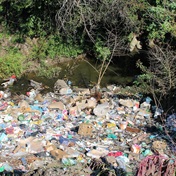
- In the last six years, farm debt has grown by roughly R68 billion to reach R168.5 billion in 2018.
Access to
affordable credit is important for farmers' prosperity and for the security of food supply in the country.
Without affordable credit, farmers and agribusinesses will be compelled to downsize farming operations, reducing farm employment and food production.
The country's farm debt has been growing since the 1980s, raising the risk for food production and sustainability.
Between 1980 and 1990, farm debt jumped from R3.8 billion to R15.9 billion, caused by instabilities in the country, price controls and market sanctions that existed in the country during that period.
From 1996 to 2012, the growth on farm debt was relatively stable, recording an average growth rate of 7% per annum, boosted by positive farm incomes.
The positive farm incomes were largely supported by the opening of new profitable export markets in Europe and Asia, adoption of technology innovations on farms, and the promulgation of domestic market-friendly legislations such as the Marketing of Agricultural Product Act of 1996 and Land and Agricultural Development Bank Act of 2002.
Following a two-decade long relatively stable farm debt, it started growing dramatically from 2015, driven by a series of droughts, trade-distorting disease outbreaks such as listeriosis and foot-and-mouth disease as well as increasing non-tariff barriers in export markets like the citrus black spot issue in Europe.
These natural, market and institutional failures had a significant impact on farm incomes, subsequently forcing farmers to acquire more credit to finance their business operations.
In the last six years, farm debt has grown by roughly R68 billion to reach R168.5 billion in 2018.
This growing farm debt poses a great risk to the stability of food production, and it requires urgent financial intervention to bring relief to farmers, in particular smallholder farmers who are most vulnerable.
Cost of credit is just as important as access to credit
Farmer co-operatives and the Land Bank were the main providers of cost-effective credit in farming communities until the early 2000s, when the funding sources for the Land Bank changed and farmer co-operatives were transformed to operate as private businesses.
The collective share of the Land Bank and farmer co-operatives in the agricultural credit market declined from 45% in 1990 to 32% in 2010, and has continued to gradually decline till today. The latest liquidity challenges at the Land Bank compounded problems for farmers to access affordable credit, and forced some to seek credit with commercial banks.
The share of commercial banks in providing agricultural credit increased from 21% in 1980 to 37% in 2000 and to 60% in 2018. The share of the Department of Agriculture, Land Reform and Rural Development in providing agricultural credit decreased from 6% in 1990 to almost 0% in 2018.
It is important to note the department still provides small grants to vulnerable farmers through the Comprehensive Agricultural Support Programme.
But effectively, the shift in agricultural credit providers from state-owned and supported institutions to purely privately owned institutions not only increased the cost of accessing credit, but also made it difficult to access credit. Private institutions generally require a strong asset base and collateral to secure credit, which tends to exclude many farmers.
Impact of unaffordable credit on food security
After the country joined the World Trade Organisation in 1995, it removed almost all forms of support and protection for farmers, except for milk and sugar ones who still receive some statutory support from the government.
At present, the percentage of gross farm income generated from government support is estimated at 2%, which is extremely low compared with an average of 20% in Europe, 15% in China, and 10% in the US.
The limited support from the state, coupled with unaffordable credit, is impacting the production and employment creation capacity of farmers in South Africa.
The situation is more severe for smallholder farmers, in particular, black farmers who were excluded from government support prior to 1994. For the majority of black farmers, their funding challenges remain largely unchanged since the dawn of democracy in the country.
Their fortunes are fading, with an increasing dominance of private institutions providing farm credit as they are unable to access and afford the available farm credits.
Dr Sifiso Ntombela is the chief economist at the National Agricultural Marketing Council (NAMC). Follow him on Twitter: @Ntombela_SM. Views expressed are his own.




 Publications
Publications
 Partners
Partners











